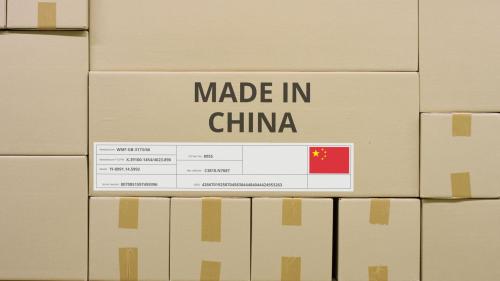The following is a CNBC News Transcript of Business Center with Anchor Sue Herera
SUE HERERA, co-anchor: Let’s take a look now at yesterday’s decision by the US to put caps on textile imports from China and how that might affect relations between the two countries. Dr. Lael Branyard–Brainard, rather, senior fellow and New Century chair at The Brookings Institution, joins us now with more.
Dr. Brainard, thank you very much for joining us tonight.
Dr. LAEL BRAINARD (The Brookings Institution): Thank you.
HERERA: Let’s start, first of all, with–with the move that the US made yesterday. Commerce Secretary Evans backed away from it a bit today, saying that it does not signal a turn by the US towards a more protectionist policy against China. Do you believe that or not?
Dr. BRAINARD: Well, I’ll tell you, it’s very rare for trade spats to move markets. And the fact that the decision–the announcement yesterday moved the foreign currency markets suggests that observers all around signal more to come.
HERERA: Yeah.
Dr. BRAINARD: And the reality is I think the textile industry is gearing up to bring more of these complaints. So I–I think many would predict more of the same.
HERERA: You know, you brought up an interesting point. You’re–it is true that the foreign exchange markets usually don’t react the way that they did or react at all. Why do you think they did? Is it because of the size of China and its importance to the US in terms of trade relations, or is it something else completely?
Dr. BRAINARD: Well, it certainly is not because of the size of this trade dispute. The–the reality is the amount of trade, while very important to particular communities, is not going to effect the overall US economy. The real question is: Does this signal, as we go into election 2004, that the administration is open for business on doing more of these kinds of quotas? And, certainly, China is the most vulnerable. China is for the 2004 election what Japan was in ’92.
HERERA: But–but yet, at the same time, I mean, having been to China, when you look at the growth that’s going on in China and the relationship of US businesses, whether it’s high tech, whether it’s manufacturing–when you look at the number of US interests that are now in China, how does the Bush administration balance the need to appeal to voters on the–on the protectionist trade side of things and yet also play to US companies, who–many of whom have now sizable interests in China?
Dr. BRAINARD: It’s a very tricky balancing act. The textile states, South Carolina, North Carolina, Georgia, are going to be very important to the president; a lot of Republican votes on the line there. But as you say, we’ve got big corporate interests at stake as well. What will also be interesting to see is how China plays it. Last week they were here on a big buying spree clearly wanting to, you know, feed the goose that lays the golden egg; this week canceling agricultural-buying missions. Are they going to try to actually rein in this explosive growth in textile trade themselves, or are they going to find themselves drawn increasingly into this kind of counterretaliation?
HERERA: Could part of this also be part of a strategy by the administration to pressure China to further move on the currency issues that the Treasury has been trying to get China to address?
Dr. BRAINARD: Absolutely. I think that we’re in a bit of a bidding war between the president and the Democratic presidential candidates on who can be tougher on China. Clearly the currency plays into the whole set of manufacturing problems that we’re having here in this country, and this is one of the few areas where, on textiles in particular, we do have a trade agreement that says that these kinds of actions are–are legitimate.
HERERA: What would you be watching for from China to give us an idea of how they are going to address the many moves by the Bush administration?
Dr. BRAINARD: Well, it will be very interesting to see if they continue with the sort of hawkish tone of, ‘We’re not going to move forward on these purchases that we’ve promised, or we’re not going to engage in further purchases,’ or whether there’s some conciliation and where they look to maybe do a little voluntary restraint o–on some of these sectors that are surging.
HERERA: Dr. Brainard, this is going to be a dispute that’s going to continue for a while, so we hope you’ll come back and spend more time us with.
Dr. BRAINARD: Thank you.
HERERA: Thanks so much. Dr. Lael Brainard, senior fellow and New Century chair at The Brookings Institutions.
The Brookings Institution is committed to quality, independence, and impact.
We are supported by a diverse array of funders. In line with our values and policies, each Brookings publication represents the sole views of its author(s).


Commentary
The Impact of Textile Imports From China
November 19, 2003